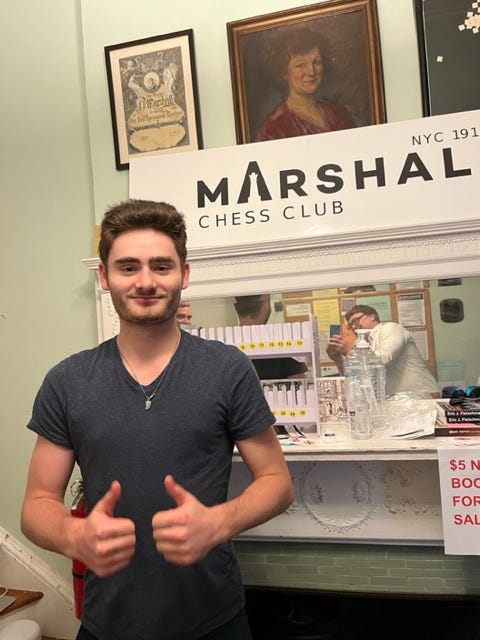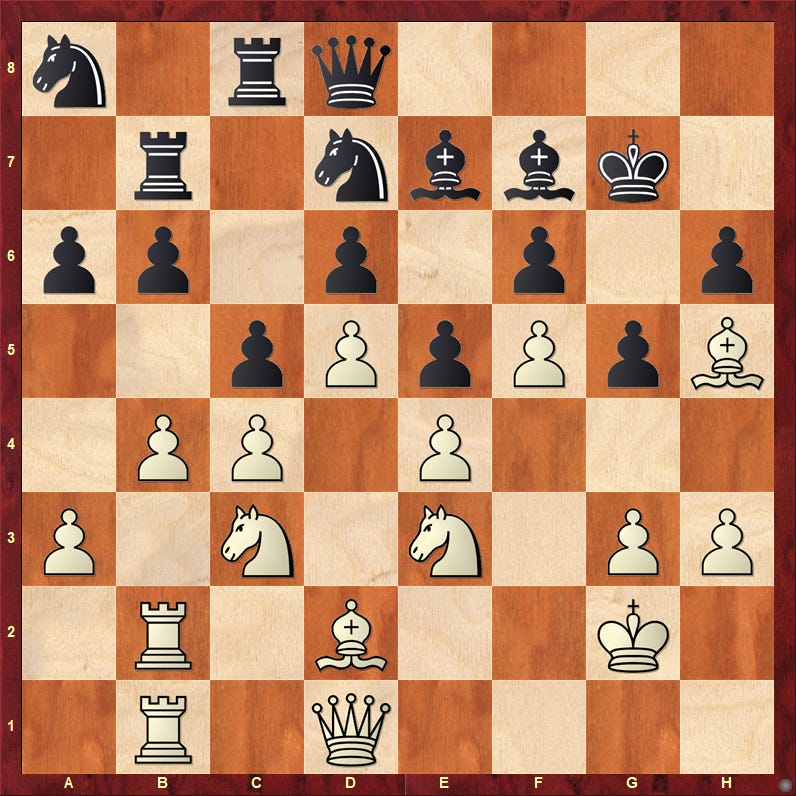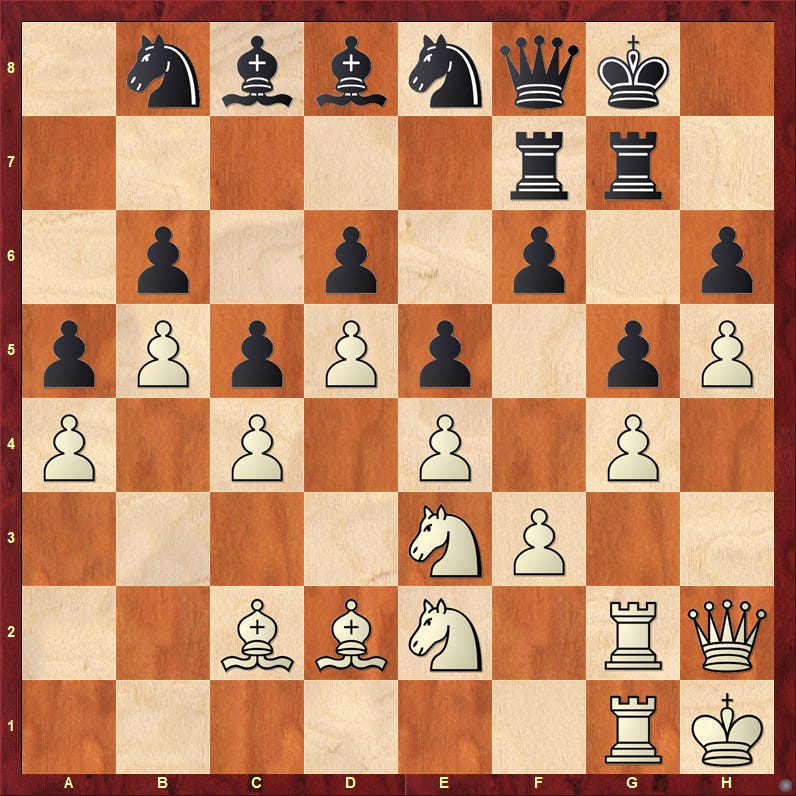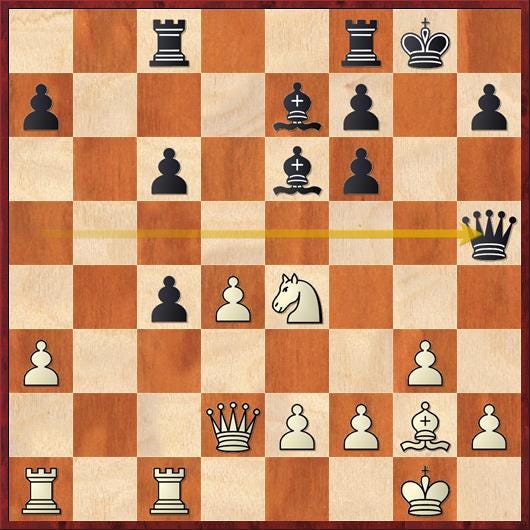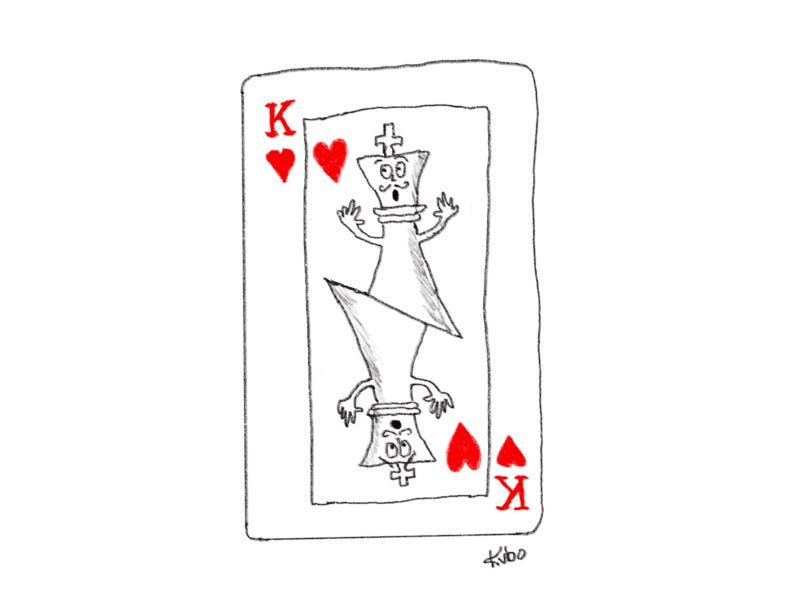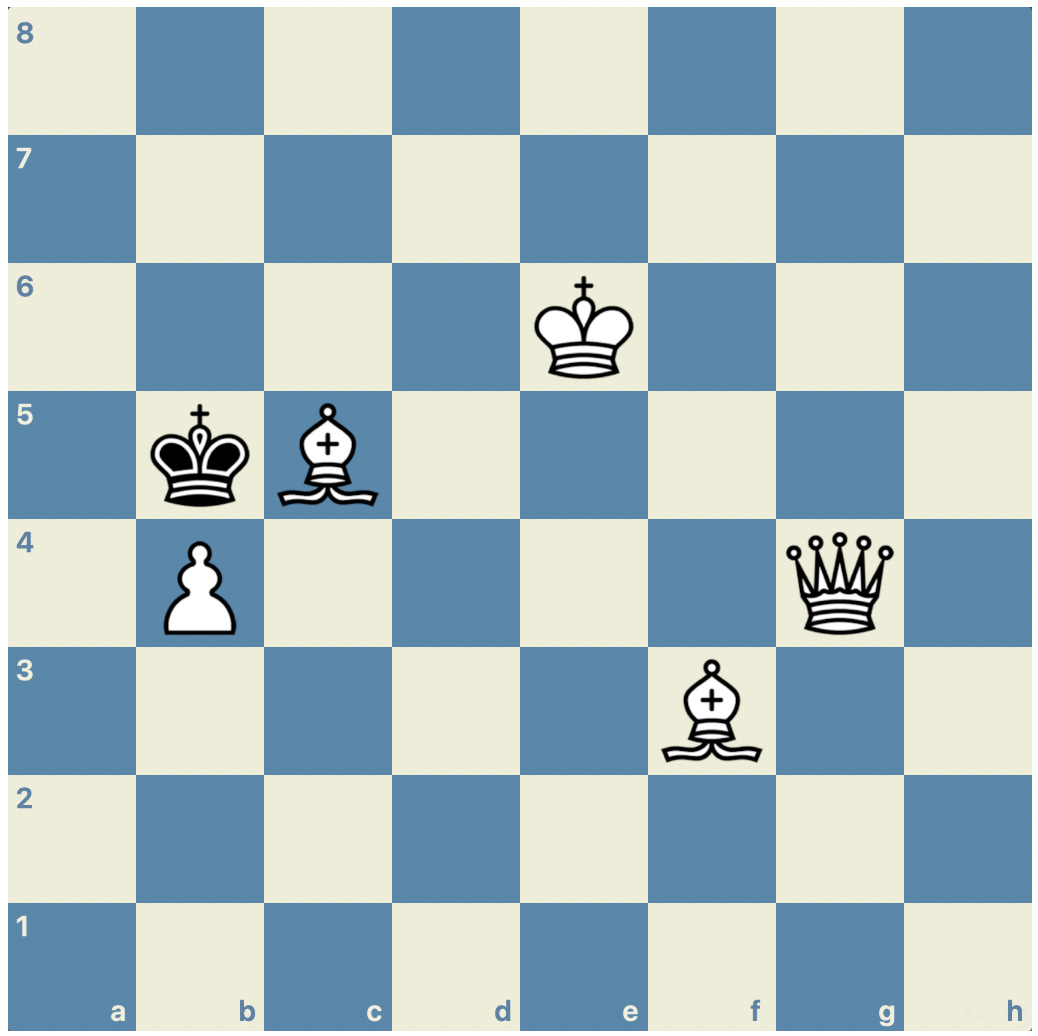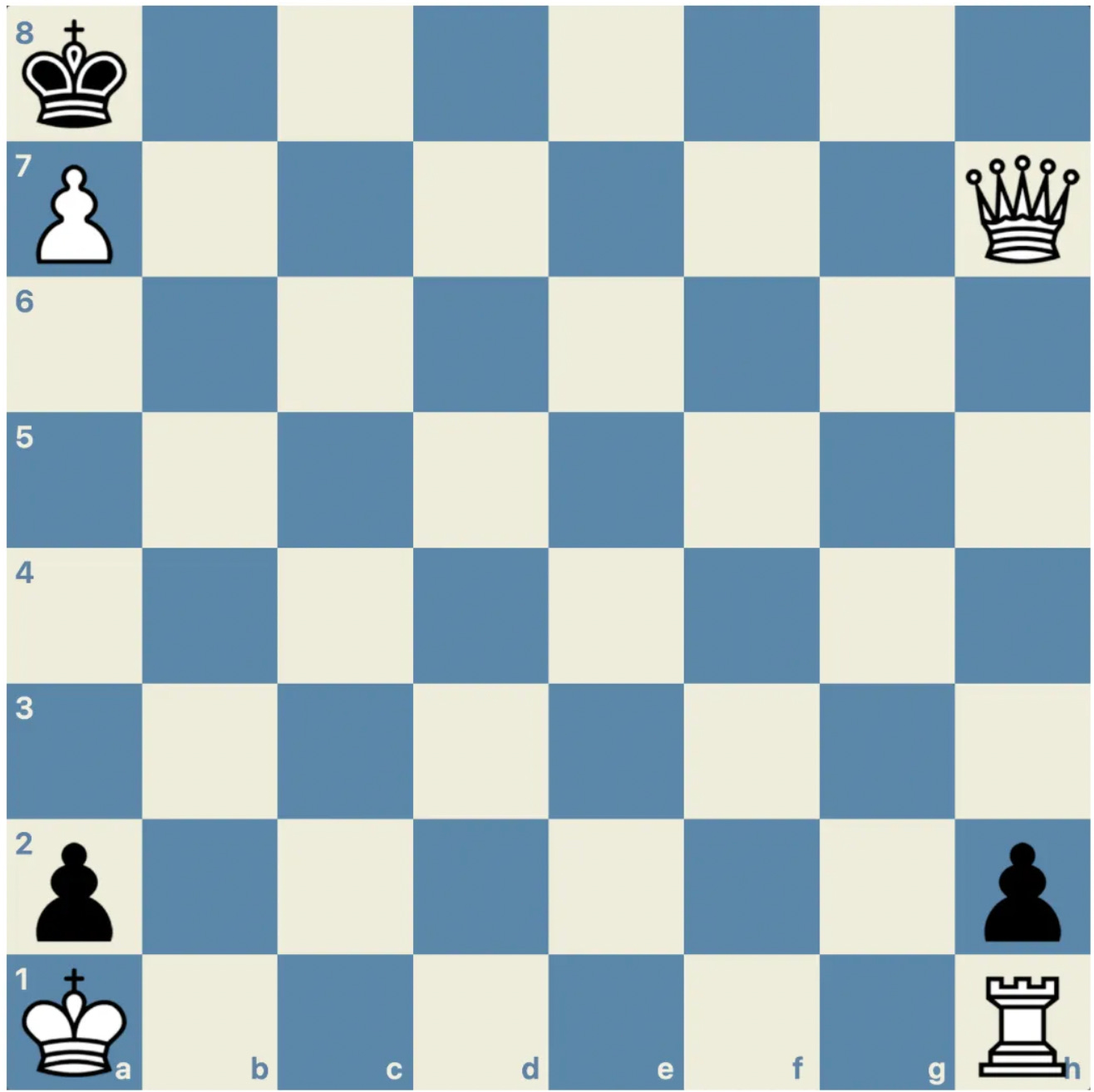In This Issue: From The Skittles Room King's Kibitzes, by FM Alex King Across the Table, with FM Nathan Resika Chess Toons En Passant Problem of the Week, by Alexander George Editor's Note
Welcome back, fellow chess players, to this edition of the Marshall Chess Club's fortnightly bulletin, The Marshall Spectator.
We’re looking for players to represent the Marshall in another formidable online match: on Sunday, October 15th at 7pm, the Marshall will be playing against a 30-player-strong team from the Princeton Chess Academy. The match will consist of two G/15+10 games (one each with White & Black). We’re looking for players in the following rating categories:
3 players from 2000-2200
6 players around 1700
7 players around 1300
4 players around 1000
10 players below 700
If you’re interested in playing, please reach out to register for the event by emailing us at td@marshallchessclub.org
Our historic club held more than a dozen rated chess tournaments over the last two weeks. Many of our events are selling out, so be sure to register in advance because our space is limited.
The Rated Beginner Open on October 1 had 36 players registered and was won by Charles Hu, Jonathan Hsieh, Bradley Callander and Shu Chen who scored 3 points to win $103.25 each.
The Sunday Game 50 Open on October 1 had an even 50 players registered and was won by IM Mykola Bortnyk, who scored a perfect 4 out of 4 to win the $294 first place prize. IM Justin Sarkar, Ryan Zhu and Nick Panico scored 3.5 out of 4, winning $65.33 each
The Sunday Game Under 1600 on October 1 had had 20 players registered and was won by Eli Assa, who scored 3.5 out of 4 to win the $120 first place prize. James Michalski, Reginal Denis, Allyson Yu and Keving Liu scored 3 points, winning $35 each.
The Saturday Game 50 Open on September 30 had 54 players registered and was won by GM Aleksandr Lenderman, who scored a perfect 4 out of 4 to win $312. IM Justin Sarkar, Jasmine Su and Bryan Lin scored 3.5 out of 4, winning $69.33, while Henry Burton won a $156 class prize for the same score.
The Saturday Game 50 Under 1800 on September 30 had 16 players registered and was won by Eli Stern, who scored a perfect 4 out of 4 to win $96. Brian Huang, Philip Liu and Nova Travis all scored 3 points and won $37.33 for their performance.
The Under 2000 Morning Action on September 30 had 47 players registered and was won by Claudio Martin Mariani, Brendan Moran and Ashton Bellur, who all had perfect 3 out of 3 scores and won $131.67 each. The class prize in that event was won by Marissa Lu, who scored 2.5 out of 3 to win $169.
The $500 FIDE Blitz on September 27 had an even 40 players registered and was won by GM Federico Perez Ponsa, a visiting grandmaster from Buenos Aires who scored a near perfect 8 out of 9 to win the $200 first place prize. IM Mykola Bortnyk and FM Brewington Hardaway scored 7.5 out of 9 to win $75 each, while Toshinori Underwood, Max Mottola and Elliot Goodrich scored 6 out of 9 to win $50 each.
The Nagib Gebran Action on September 26 had 35 players registered and was won by Toshinori Underwood who scored a perfect 4 out of 4 to win the $164 first place prize. Aditeya Das took the second place prize of $82, scoring 3.5 out of 4 and earning the title of National Master in the process. The remaining prize funds went to Chase Knowles and Joseph Otero who scored 3 out of 4 to win $82 each.
The Thursday Open that concluded on September 26 had 33 players and was won by George Berg, who scored 5 out of 6 to earn the clear first place prize of $267. Oliver Chernin won the second place prize of $160 for his 4.5 out of 6 score, while FM Nathan Resika, Dwight Dans, Nkosi Nkululeko and Sergey Nizhegorodtsev won $20 each for their 4 out of 6 score. The class prize of $134 was won by Alesandra Lussie, who scored 3.5 out of 6.
The Rated Beginner Open on September 24 had 40 players registered and concluded in a 4-way tie. Jeff Sheng, William Yang, Reginal Denis and Alexis Feijoo scored a perfect 3 out of 3 to earn $125 each.
The Monthly Under 2400 that concluded on September 24 had 74 players and was won by Aditeya Das, who scored 4.5 out of 5 to win $540. IM Justin Sarkar, Daniel F Johnston, Kiren Nasta and Luc Hoffman scored 4 points to win $112.50 each, while Ciprian Solomon scored 4 points to win the class prize of $270. The remaining class prizes were won by Arsen Lahoud and Leonhard Chang, who scored 3.5 points to win $270 each for their performance.
The Under 2000 Morning Action on September 23 had a whopping 61 players registered, and concluded with a 5-way tie for first place. Bryson Wolf, Naman Mehta, Dan Stronger, Ashton Bellur and Giuseppe Naglieri all had perfect 3 out of 3 scores and won $103.40 for their perfect performances.
The Nagib Gebran Action on September 21 had 29 players registered and was finished in a three-way tie: IM Kevin Wang, Ted Belanoff and Daniel Yassky each scored 3.5 out of 4 to win $90.67 each. Partrick Tomporowski scored an even 3 points to win $68.
Recently, two of our most active members crossed the 2200 rating threshold to attain the title of National Master. Aditeya Das and Kole Moses both achieved after getting fantastic results in our events over the last few weeks. Kole Moses earned the title fittingly by playing in our monthly Masters event, and scoring a hard fought draw in the final round against IM Kevin Wang.
King’s Kibitzes: Trade Protectionism, by FM Alex King
In some openings, such as the Scandinavian or the Englund Gambit, the first capture of the game occurs as early as move 2. In other openings, such as the King’s Indian or the Closed Spanish, the first capture might not occur until past move 20.
What is the latest move on which the first capture of the game occurred? Among my tournament games, the latest first capture was on move 32:
Alex King (2338) - Graham Horobetz (2288) Memphis, 6 Jul 2023
32…Bxh5 33.Qxh5 and the game was drawn on move 56.
I had a later first capture in an online game:
Alex King (2454) - Hemachandra Rambha (2221) Lichess, 27 Mar 2020
42…Bxb5 43.cxb5 and White won on move 79.
Among all games in Mega Database, the undisputed latest first capture was from a game in the 1969 World Junior Championship:
Kenneth Rogoff - Arthur Williams Stockholm, 27 Aug 1969
94.bxc5 bxc5 and the game was drawn on move 106.
Runner-up was this Polish club-player struggle:
Stanislaw Praczukowski (1862) - Michal Barc (1841) Warsaw, 5 Dec 2013
89.hxg5 hxg5 and the game was drawn on move 98.
Third and fourth place were not far behind:
Egon Brestian (2455) - Hartmuth Beck (2250) Austria, 1997
85…Ba8 Draw agreed.
Alessio De Santis (2222) - Antonio Loiacono (2088) Arco, 29 Dec 2016
84…Rh7 Draw agreed.
Notice anything similar about these positions?
They all have the same central pawn structure! (With one slight exception.)
This blocked structure typically arises from the King’s Indian, the Old Indian, or the Benoni - especially the Czech Benoni, about which our very own Spectator editor Greg Keener co-wrote a book with Marshall legend FM Asa Hoffmann:
This structure appears to lend itself toward a late first capture, or what might be termed “trade protectionism”. Ken Rogoff’s 1969 game above therefore makes him the most successful trade-protectionist in chess history, an unlikely achievement for a Chief Economist of the IMF.
Keep this structure in mind if you’re in the mood to keep all your pieces on the board for as long as possible, and/or your economy nationalized. But beware that the first trade can be the deepest:
Mihail Marin (2548) - Julio Granda Zuniga (2657) La Massana, 25 Jul 2012
26.Nf5! gxf5 27.exf5 and White won on move 40.
Until next month…
FM Alex King, Marshall Spectator Chief Economist
Across the Table, with FM Nathan Resika
Q: When did you start playing chess and how did you learn?
My Dad taught me at ten. He probably played me only either to ten games total, beating me every one (he was about 500 strength I’d estimate.) After that year, I didn’t play again till college.
Q: How long have you been a member of the club?
I was a member on and off since the mid-nineties. I actually worked as an assistant manager and salesman at the Manhattan Chess Club in 1995, before I began teaching chess.
Q: What's your favorite opening trap?
I have no favorite traps...though I have caught out a lot of people as Black in the Pirc defense as well as in the Berlin Classical defense of the Lopez.
Q: Any great game you've played at the Marshall you'd like to share?
Yes. So many it’s hard to chose, but I searched boxes of game scores and finally found one of the more memorable ones I was seeking, against Eddie Kopiecki. A very good competitor, good sportsman, and one of New York’s most active tournament players, Edward Kopiecki passed away a few years ago when he was around 63. He was one of the Marshall Chess Club’s most active members. He was a tough "New York Expert," who had a peak rating of candidate master (just under 2200) in his heyday during the late nineties. He could beat most masters on occasion, usually on the White side of a Sicilian, or the Black side of the Marshall Gambit.
I’ll never forget when I was playing him at the club in the late nineties, I reached out my hand and said "I’m resigning." He answered, "You’re resigning? Why?" He urged me to play on, wanting to continue playing more than just to accept the point. Perhaps he cared more about the quality of the game than the result. Anyway, I drew the game and he was not upset at all! I’ve never forgotten that and always had a soft spot for Eddie, who always had excellent chess etiquette at the board. No distractions, no twiddling of pawns, no standing in front of the board swaying. Always a smile before and after play, he will be missed!
1. Nf3 d5 2. g3 Nf6 3. Bg2 c5 4. d4 Nc6 5. O-O e6 6. c4 Be7 7. cxd5 exd5 via an odd move order we enter a Tarrasch defense, a White specialty pioneered by one of the greatest ever, Akiba Rubinstein!
8. Nc3 O-O 9. Bg5 c4 10. Ne5 Be6 11. Nxc6 bxc6 12. b3 Qa5 13. Qd2 Bb4 Eddie, The late legendary Player I called the "strongest New York Expert" for years; loved to play his favorite pet lines repeatedly against all adversaries, which was a weakness as well as a strength: the former mainly when a couple of his pet variations were just bad. I believe this line is a lot better for white after his next move, leaving black fighting for compensation for terrible pawn structure. we played from this position probably 3 or 4 times with white dominating' though I did draw this position once against a strong IM.
14. Bxf6 ! gxf6 (14... Bxc3 ?? 15. Qg5! winning) 15. Rfc1 Rac8 16. a3 Be7 17. bxc4 dxc4 18. Ne4 Qh5.
Look at the diagram and think what you would do with White:
White to Move
Now don’t look past the diagram and think what you would do here. (18..better is. Qxd2 19. Nxd2 Rfd8 20. e3 c5 21. d5 $1 Bxd5 22. Bxd5 Rxd5 (22... c3 !?) 23. Nxc4 +-)
19. Qb4 !!? I give two exclamation marks because of the shock that this move induced in my opponent, and the question mark because it may not be objectively the best move. 19.e3 or 19.Rab1 are good alternatives; but it was hard to resist this flood of inspiration thought up at the board. The look on my friend Eddie’s face was priceless. After the game, I showed it to GM Amon Simutowe and he excitedly said that he absolutely loved this move!
19…f5? The surprise worked and my opponent went wrong. 19... Bxb4 20. Nxf6+ Kh8 21. Nxh5 Bd2! 22. Nf4 ! Bxc1 (22... c3 !?) 23. Rxc1 would have left white in charge, but I would have had to find the exchange sac after a queen sac!
20. Qxe7 fxe4 21. Bxe4 Qxe2 22. Qg5+ Kh8 23. Qf6+ Kg8 24. Qg5+ Kh8 25. Qe5+ f6 26. Qxe6 Rce8 27. Qxc6 Rxe4 28. Re1 (Qxc4 was perhaps cleaner but White’s rooks remain disconnected here due to his Black’s poor king position.)
28.Qxe1+ 29. Rxe1 Rxe1+ 30. Kg2 Rc1 31. d5 Kg7 32. d6 Rd1 33. Qd7+ Kh6 34. Qh3+ Kg5 35. f4+ Kg6 drops the rook on d1 to Qg4 1-0
Q: What about yourself would you like other members to know, that we may not know! Any surprising facts?
I think almost every one knows Im a professional singer. You can one of my performances here. I have recently been dabbling in Comedy as well.
I also lived on a Greek Island as a kid( though Im not Greek).Plus I have 16 year old Boy and Girl twins. Im truly blessed with never a dull moment. I was also profiled in American Chess Magazine and I was featured in the World Chess Hall of Fame Music exhibition recently.
Nathan Resika’s Chess Resume
First tournament: 1984 Pillsbury Memorial( 1st Under 1400 section, 4-0) age 24
Titles:
National Master 1992 ( age 31)
Original Life Master 1996
FIDE Master 2000 United States Senior Co Champion 2013 Peak Fide Rating : 2320 Peak Us rating :2318
Nathan has at least 50 classical long game wins over International masters or above.
As a senior(over 50) ,from 2011-2015 , Nathan took 1st prize 14 times and second prize 8 times in classical slow open chess tournaments;Many of these at the historic and strong Marshall chess club.
He decisively won the first ever FIDE Monday tournament there, as well the inaugural Fide Thursday event during the same period,
some outstanding results:
1st prize in the Budapest International Master round robin (12/1998)score: 7/10
1st Prize in Budapest Fide master tournament ( 2013 summer) score: 9 and ½ from 10 games( 2 and ½ points clear of 2nd place)
Most notable wins:
Joshua Waitzkin ( NY Open 1992) top player in USA under 18
Ilya Gurevich ( Framingham 1992), Newly crowned world Junior Champion
Giorgi Kachaeshvili ( Marshall Grand Prix 1998) highest rated win( 2678)
Hikaru Nakamura ( Budapest IM round Robin 2000)
Zurab Jahashvili ( Southwest Open 2020)
Some notable draws:
Alex wojkiewicz ( Marshall GP 98)highest rated draw (2703, # 3 in USA) 1998
Teimour Radjabov( Budapest GM round Robin 2000) Fidel Corrales Jimenez( Eattern Open 2022) Mykola Bortnyk ( Eastern Open 2022)
Studied with:
Senior Master Jacob Rasin 1990-94 GM Alexander Chernin 1999-2002
Highly recommended as a teacher by GM Pal Benko, who said "His understanding of chess is far above his elo rating” full recommendation is available upon request. Nathan i teaches his own chess programs to kids and adults; in both classes and private lessons, in Westchester. He is also a successful classical musician/having sung as a soloist at Carnegie hall and all over the country.
En Passant
-GM Maxime Vachier-Lagrave has pulled off the mission impossible of beating world number-one Magnus Carlsen, not once but twice, to win the 2023 AI Cup and qualify for the Champions Chess Tour Finals in Toronto. "Maxime was strong and I failed at the critical moments," said Carlsen, after failing to win a game while Vachier-Lagrave won three.
-Jeremy Silman, Author of Best-Selling Chess Books, Died at 69. Writing in a conversational and colloquial style, he offered practical advice on how to cut down on mistakes, the most difficult part of the game to master.
-The 7th Youth Chess Composing Challenge recently ended. Your author is a great fan of bringing younger people to chess composition, or to art in general.
Chess Toons
Problem of the Week
P. H. Williams, 1890
White to mate in 2.
Another beautiful miniature from Williams. The key is spectacular: counter-intuitive and yet multi-purposed. See how long it takes you to work it out!
---
Last issue’s puzzle: P. H. Williams, 1904
Solution to Williams, 1904: 1. Kb2 a1=Q+, 2.Rxa1 h1=Q, 3.Qxh1 mate. Beautiful and comical.
Editor's Note
As always, if you have any feedback, comments, or would like to submit an article please contact us directly at td@marshallchessclub.org.
Enjoy, and thanks for reading!
The Marshall Chess Club
23 West Tenth Street New York, NY 10011
212.477.3716








